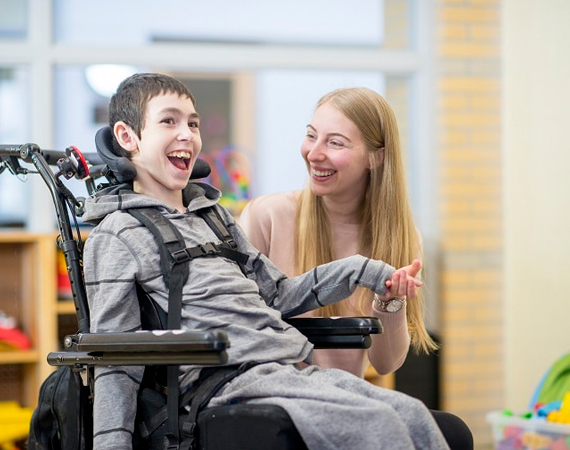Specialized Support Coordination is a vital component of Capacity Building Services under the National Disability Insurance Scheme (NDIS) in Australia. It is specifically tailored to individuals with complex needs or significant barriers, aiming to enhance their capacity to navigate the NDIS system, access appropriate supports and services, and achieve their goals. Here’s a detailed description of Specialized Support Coordination as part of Capacity Building Services under NDIS in Australia:
- Comprehensive Assessment: Specialized Support Coordinators conduct thorough assessments to understand the individual’s specific needs, strengths, goals, challenges, and barriers. This assessment is detailed and holistic, taking into account various aspects of the person’s life and circumstances.
- Individualized Capacity Building Plans: Based on the assessment, the Specialized Support Coordinator collaborates closely with the individual, their family, caregivers, and relevant stakeholders to develop individualized capacity building plans. These plans focus on building the individual’s skills, knowledge, confidence, and independence.

- Navigating the NDIS System: Specialized Support Coordinators are experts in navigating the complexities of the NDIS system. They assist individuals in understanding their NDIS plan, funding allocations, eligibility criteria, and how to effectively utilize their funding to access supports and services.
- Coordinated Support and Service Provision: Coordinators work closely with service providers, allied health professionals, community organizations, and government agencies to coordinate a range of supports and services that align with the individual’s capacity building goals. This may include therapies, education and training programs, skill development activities, and social inclusion initiatives.
- Advocacy and Empowerment: Specialized Support Coordinators advocate for the rights and needs of individuals with disabilities, ensuring they have a voice in decision-making processes and that their preferences and choices are respected. They empower individuals to self-advocate and make informed decisions about their lives.
- Skill Development and Training: Capacity Building Services include targeted skill development and training programs designed to enhance the individual’s abilities in various areas such as communication, social skills, daily living skills, vocational skills, and self-management. Coordinators identify relevant training opportunities and facilitate access to them.
- Support Network Strengthening: Coordinators assist in strengthening the individual’s support network, including family members, friends, caregivers, and community connections. They provide guidance on effective communication, collaboration, and mutual support within the support network.
- Crisis Prevention and Management: Specialized Support Coordinators help in identifying and addressing potential crisis situations proactively. They develop crisis prevention plans, provide coping strategies, and access emergency supports and interventions when needed.
- Progress Monitoring and Review: Coordinators monitor the individual’s progress toward their capacity building goals, regularly reviewing the effectiveness of supports and services. They make adjustments to the capacity building plan as necessary to ensure it remains relevant and aligned with the individual’s evolving needs and aspirations.
- Transition Planning and Life Transitions: Capacity Building Services also encompass transition planning for various life stages, such as transitioning from school to adulthood, entering the workforce, independent living arrangements, and accessing community-based activities. Coordinators facilitate smooth transitions and continuity of supports during these critical life transitions.
In summary, Specialized Support Coordination as part of Capacity Building Services under NDIS in Australia is focused on empowering individuals with complex needs to build their skills, capabilities, and independence. It involves collaborative planning, advocacy, skill development, crisis management, and ongoing support to enhance the individual’s quality of life and participation in the community.
